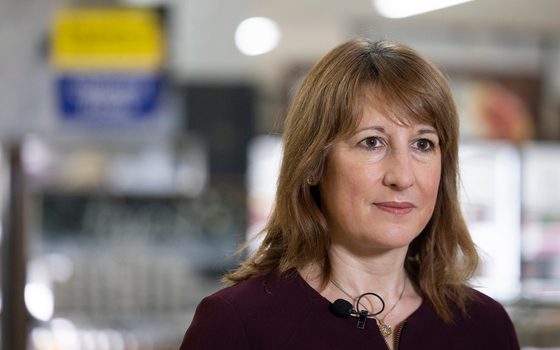The coronavirus bailout
We are experiencing a health crisis within an economic crisis. You can't diffuse one without disrupting the other.
19 March 2020
It’s as though the enormity of the situation still hasn’t fully dawned on government ministers, as they’re dragged by events from measure to measure.
The paradox of responding to the coronavirus pandemic is that every new effort to slow its spread further deepens the impacts on people’s lives and livelihoods. This is an explosive health crisis encased in an unstable economic crisis. You cannot diffuse one without disrupting the other.
The measures necessary to reduce the number of deaths from perhaps hundreds of thousands to tens of thousands, which is a dismal science, cause both supply and demand in the economy to freeze over as more and more workers and consumers are forced to stay at home. Hospitality, travel, non-food retail, tourism, manufacturing and a myriad of other sectors are either laying off workers or struggling to maintain their workforce.
The macro effects of this are already visible in tumbling stock markets and massive currency fluctuations, with the pound particularly badly hit in relation to the dollar. In the global financial crisis, the UK economy’s worst quarter was the last of 2008, when it contracted by 2.2%. Early prognoses suggest the UK economy might contract by more than twice this amount in the current quarter. In the 2008 crisis, where people felt the effects more sharply in the aftermath — through austerity — than during the event itself. But this time it’s the immediate onset, with income in some households coming to an abrupt stop, which will mainline crisis straight into the real economy and test the frailties of our safety nets.
As it stands, the government’s ‘whatever it takes’ mantra is semi-hollow. Its response to the epidemic two or three weeks too late, chancellor Sunak, who is just a few weeks into the job, has announced a package of measures to support businesses and households. While business rates holidays and grants of £25,000 for smaller enterprises are welcome, the bulk of the £350 billion will be in the form of loans. Predictably, there’s a lot of talk about bailing out big businesses such as airlines, but too little about bailing out households.
What type of bailout we end up with will have profound socio-economic effects, determining the shape of our economy when the pandemic is over. We must act now to ensure that resources are fairly distributed across our economy and that everybody, particularly the most vulnerable, is able to get through this crisis.
“Predictably, there’s a lot of talk about bailing out big businesses such as airlines, but too little about bailing out households.”
Though early to make predictions, it’s likely there will be three phases to the economics of the coronavirus pandemic.
The first, where we are at the moment, is a triage phase in which demand and supply grind to an abrupt halt. Insecure and low paid workers in industries such as hospitality will have already lost their income in droves and need very urgent assistance with fast, simple and direct measures. These should include boosting levels and extending cover of statutory sick pay, increasing generosity of Universal Credit (UC), immediately scrapping the five week wait for the first UC payment, and suspending mortgage, rent, council tax and utility payments for three months. Banks might absorb some of the costs of this, but it will all have to be backstopped by the Treasury and the Bank of England.
In addition, the government needs to offer an income guarantee, requiring companies to keep their workers on and pay them a significant proportion of their wages using reverse payments through the tax system. Not only is this important for triaging the economy, but it will also help in the recovery phase as it will retain structural productive capacity in the economy.
We cannot assume that, after three months or so, new infections will cease and the worst will be behind us. The potential for further waves of pandemic is high, given the government’s conception of herd immunity is a myth and a vaccine is still some way off. So the second phase, which may persist for months or longer, is the life support phase. Many of the measures needed now in the triage phase will have to be repeated. The most acutely affected households will be those already suffering severe financial stress. The targeting of assistance through substantial welfare reform and, for the burgeoning number of self-employed workers, National Insurance rebates, may be key. But as small and medium-sized businesses collapse and more workers lose their jobs, an even bigger package of household income support is likely to be needed.
As the pandemic unfolds, the government should guarantee struggling small businesses have the funds they need, ensuring repayments on loans made to struggling firms during the triage phase do not hit whilst the crisis is still underway. The life support phase may also involve businesses in the most acutely affected sectors, such as bus and rail companies, being bailed out through nationalisation. It’s politically ironic of course for a Conservative government to contemplate nationalising businesses. But, just as with some of the worst affected banks in the financial crisis, they may have no choice and must set ideology aside and do ‘whatever it takes’ so that jobs are protected and vital services can resume.
The third phase, which is hard even to contemplate at this moment, is recovery. While this does feel a long way off, the limited capacity of the NHS to respond to tens of thousands of critical coronavirus patients is teaching those who imposed austerity in the past crisis a hard lesson. Keeping the fiscal taps turned on as people emerge from their homes and the economy is taken off life support will be critical, with a green investment-led stimulus, boosted public services and sustained generosity in welfare. Inflation of course is a risk, but as economist Jim O’Neill has pointed out, right now that seems like a good problem to have.
It’s hard to estimate the total cost of these three phases of action — hundreds of billions for sure — but, just as the government stared at the prospect of hundreds of thousands of coronavirus deaths and realised it had to act, so too will it have to look the economic realities in the face and realise it has no choice.
It is certain the economy and probably society will be a very different place in a year’s time. This is, as chancellor Merkel has said, the biggest crisis since the second world war. There are better and worse versions of the ultimate outcome. ‘Whatever it takes’ is about reaching for the better place and swerving decisively away from the worst.
Image: Pexels
Campaigns Coronavirus response






